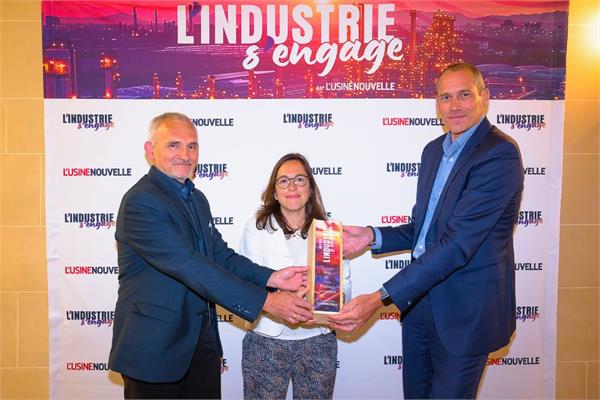
Partnering with Renault and Dürr, BASF Coatings sets new benchmarks in automotive manufacturing – achieving 100% paint transfer efficiency with zero overspray.
BASF Coatings, together with Renault Group and Dürr, has redefined the future of automotive manufacturing through the Overspray‑Free Application (OFLA) process—called Jetprint at Renault.
In June 2025, the trio received the “Trophée de l’Industrie s’engage 2025”
in the Innovative Process category at the “L’industrie s’engage par l’Usine Nouvelle” event. The award acknowledges OFLA as a game‑changing, sustainable application technology that lowers production costs and cycle times while markedly reducing environmental impact.
The OFLA process is already in full operation at Renault’s Maubeuge plant, where a revolutionary wet‑on‑wet method allows two colors to be applied in a single pass on the high‑volume production line. BASF Coatings developed a tailor‑made decor‑coat formulation that delivers the precision, automation compatibility, and consistent quality that OFLA requires. Dürr’s EcoPaintJet Pro applicator and robotic automation bring pinpoint accuracy with absolutely no overspray, orchestrated by synchronised sensors and software.
Traditional two‑tone painting forces vehicles through the paint shop twice and relies on labor‑intensive masking, generating waste and consuming extra energy. OFLA eliminates those steps with a mist‑free, high‑precision jet technology inspired by digital printing. The system applies features such as contrasting roofs or A‑to‑C pillars with surgical accuracy, freeing up paint‑shop capacity for two‑tone programs while dispensing with masking materials altogether.
“From BASF Coatings’ perspective, OFLA is a milestone in combining sustainability with industrial performance. It represents value‑driven efficiency that supports our customers’ sustainability targets and economic goals. Compared to conventional spray applications with masking‑based methods, this technology delivers measurable environmental and economic benefits: 100 % paint transfer efficiency. Process costs can be reduced by up to 70 %, while waste has been cut by 1.6 kg per vehicle through the elimination of masking materials. Energy consumption has decreased by up to 80 %, and CO₂ equivalent emissions have been lowered by around 80 %,” has stated Rachel Choo, Vice-President, Global Marketing Automotive OEM Coatings at BASF.
This award‑winning partnership underscores how purposeful collaboration can shape the paint shop of the future and accelerate the automotive industry’s sustainable transformation. It also highlights the leadership of European manufacturers in setting fresh benchmarks for efficiency and environmental responsibility. OFLA enhances design flexibility, boosts production efficiency, and pioneers a new standard for sustainable manufacturing in the sector.